English
Department Vision
Engaged 21st Century EL Learners
Mission
To develop empathetic communicators, discerning readers and creative inquirers who have strong fundamentals and 21st century competencies
Key Programmes
Read@SKGPS Programme
We believe that reading helps our students to be future-ready learner by building their language skills and perspective-taking skills. Thus, the reading habit and the love for reading should be cultivated since young. To this end, we have collaborated with the National Library Board (NLB) on various reading programmes and activities to get our students engaged and motivated to read. Reading is a huge part of the English Language curriculum and teachers conduct regular reading periods during which both teachers and students read for a period of time, hold book talks, do book presentations or engage in reading activities.
|
|
|
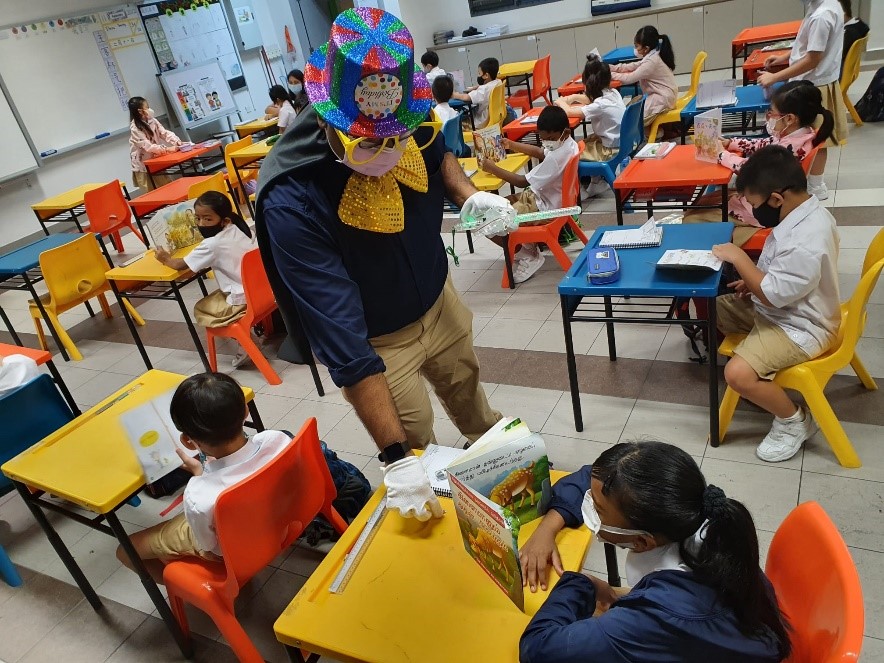
|
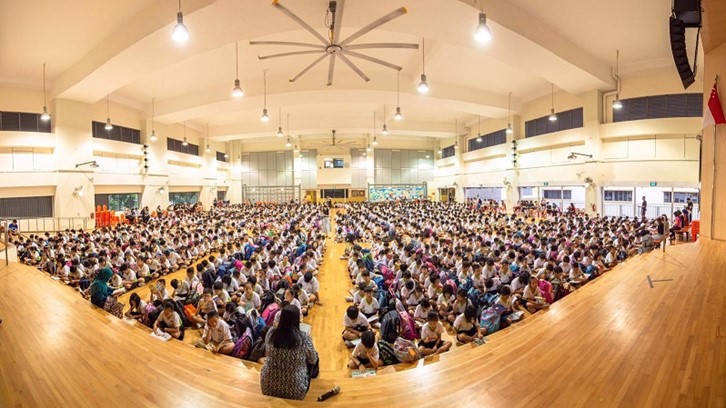
|
|
Look who’s here in my class! Dr Reads is catching students reading and rewarding them with stickers. |
Shh… the teachers and students are reading in the multi-purpose hall before the flag-raising ceremony in the morning. |
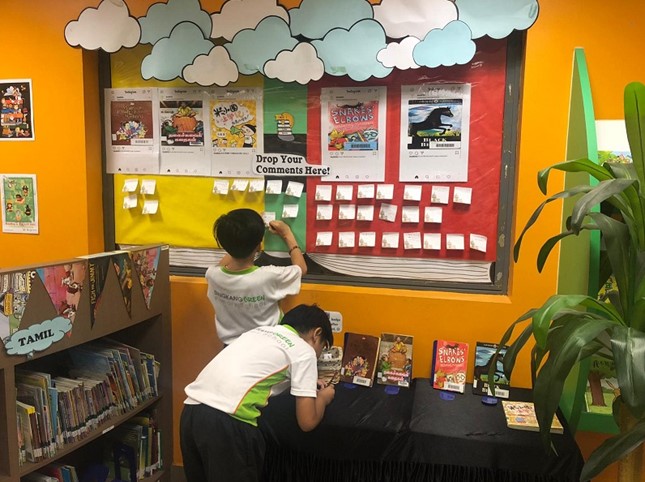
|
|
|
Students writing book recommendations for their peers in the School Library. |
Supplementary Reading Programme
To promote a positive attitude towards reading, we weave reading into the daily life of our students. An inviting reading corner is a staple feature in the classroom where students can look forward to reading a wide variety of books. In addition, we provide access to quality fiction and non-fiction texts for all our students through the Supplementary Reading Programme. Our students subscribe to graded readers and student-friendly newspapers which are used by teachers to teach language skills in class.
P1 and P2 Speech and Drama Programmes
All our P1 and P2 students attend Speech and Drama lessons during curriculum time to develop communication and collaborative skills. The programme aims to develop our students into confident communicators as Speech and Drama integrates reading, speaking and listening skills. All our students learn to enjoy the English Language in a creative environment. They especially enjoy having the opportunity to showcase their skills and talents in a class performance with their parents as their enthusiastic and supportive audience. By getting the students involved in an authentic cooperative activity to develop their confidence, we hope to excite our students in language learning.
Literature Programme
Our students are introduced to literature study from Primary Three to Primary Five. Through the study of literature, our students learn about the purpose of reading – understanding and appreciating a writer's use of language to hook an audience of readers. Literature also shows our students how writing entails making choices to create an impact on the reader. Through literature, the study of the forms and structures of language – vocabulary, grammar and syntax – is transformed into something living and relevant to the learner’s need to communicate effectively in a complex world. Beyond expanding our students’ literacy skills and vocabulary, literature is also widely known to develop empathy and a deeper understanding of the world around us as our students explore themes and character studies.
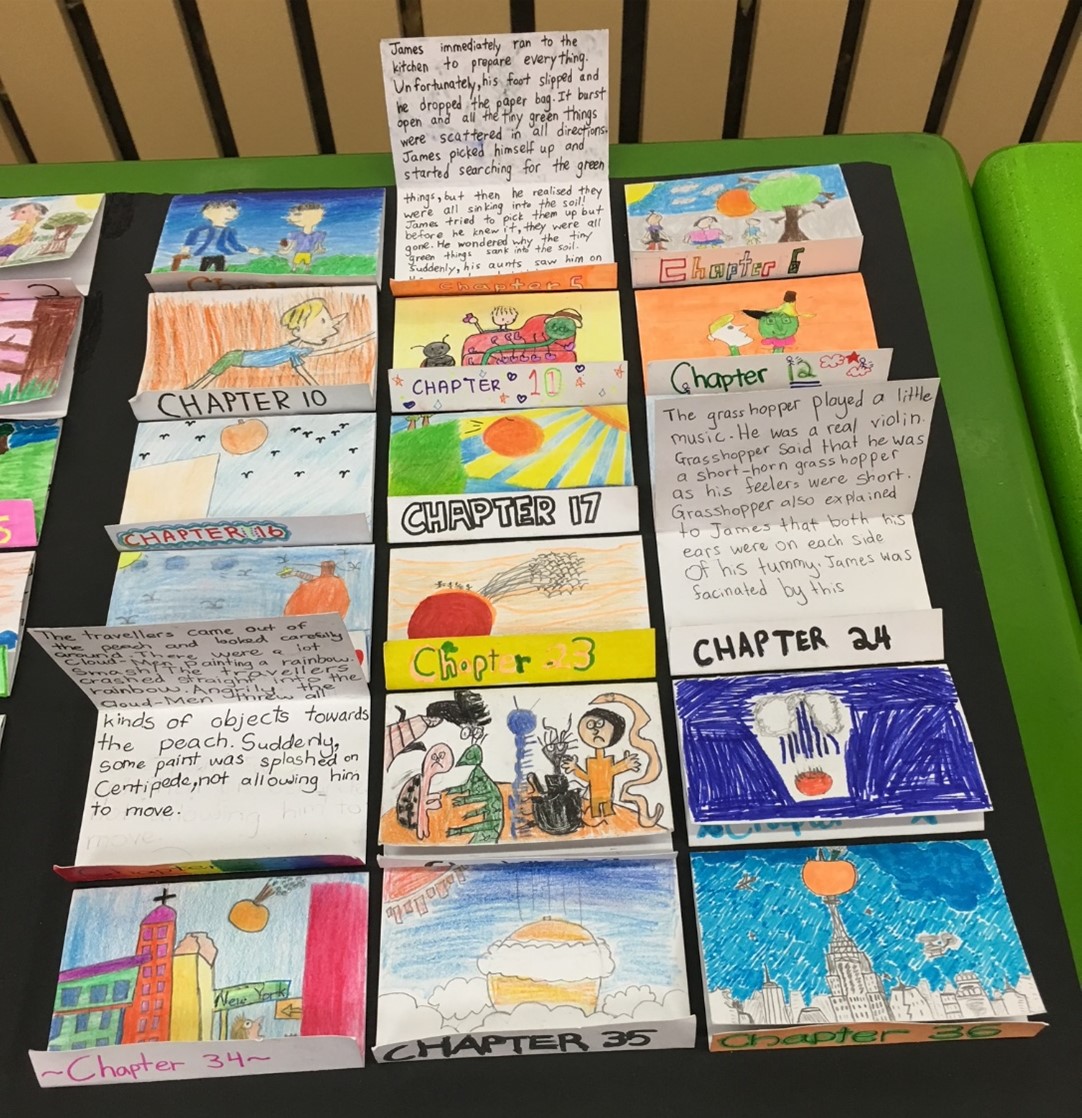
|
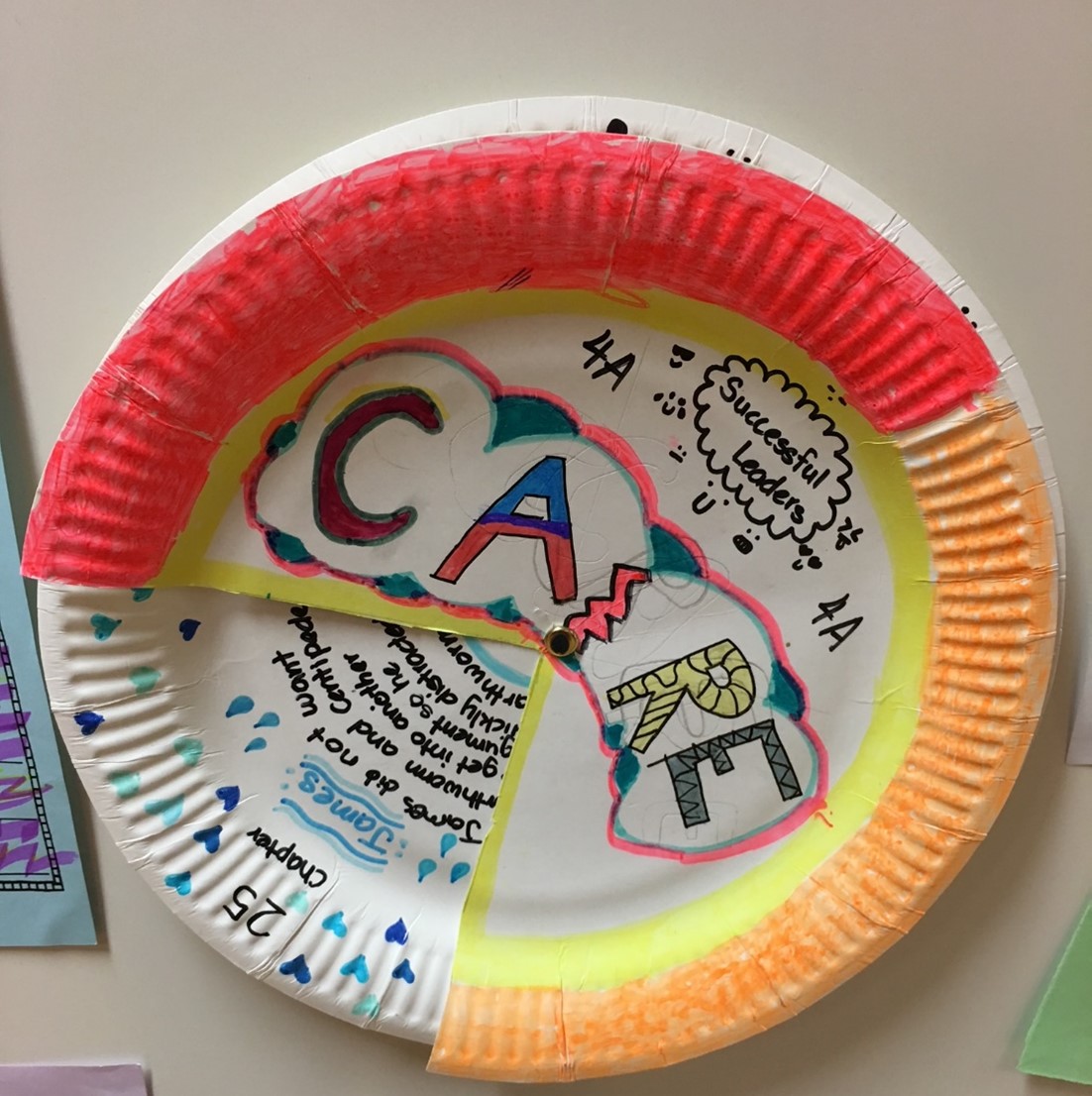
|
|
Students collaborate to come up with a summary of each chapter of James and the Giant Peach. |
Students did a character analysis for the literature study of “Frindle” and aligning it to school values. |
Learning Support Programme 2.0 (LSP 2.0)
The LSP for English, a specialised early intervention programme, provides additional support for students with weak literacy skills. Students attend lessons for one period a day in small groups, and are taught by specially trained teachers using strategies that will improve their reading ability. More attention is given to equipping our students with basic literacy skills so they can access learning in the regular classroom.
School-based Dyslexia Remediation Programme 2.0 (SDR 2.0)
The School-based Dyslexia Remediation (SDR) programme 2.0 is a specialised and intensive literacy intervention programme. It targets Primary 3 and 4 students with dyslexia, particularly those with significant difficulties in reading and spelling. The programme is conducted in small groups by trained school personnel using an evidence-based and learner-centered pedagogy, coupled with explicit, systematic and multisensory teaching. The programme enables students to (1) become confident readers, building on their knowledge of letter sounds to read long words and age-appropriate texts; (2) become confident spellers, flexible in the use of different strategies to spell complex words; and (3) develop their understanding of a variety of texts, using a range of comprehension strategies.
Reading Remediation Programme 2.0 (RRP 2.0)
The Reading Remediation Programme (RRP) aims to provide support for P3 and P4 students who still face consistent difficulty in reading in the English Language despite having completed the Learning Support Programme in P1 and P2. The programme exposes students to a range of coping strategies for reading comprehension which will enable them to better manage their learning in the regular classroom.
Useful Websites
ENGLISH LANGUAGE SYLLABUS 2020
https://www.moe.gov.sg/-/media/files/primary/2020-english-language-primary.pdf
SCHOOL eRESOURCE REPOSITORY (SERR)
https://schoolibrary.moe.edu.sg/eresourcespri/
SCHOOLBAG The Education News Site

